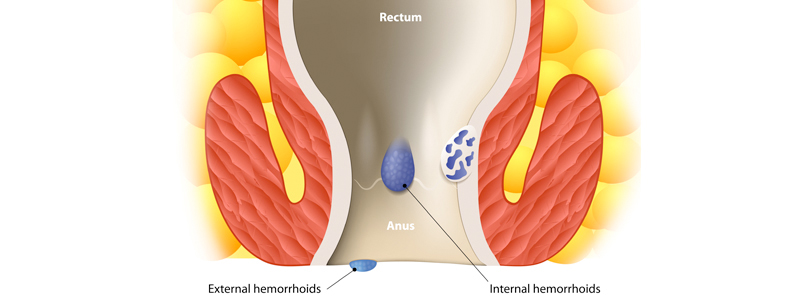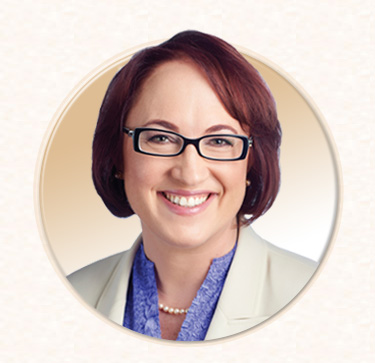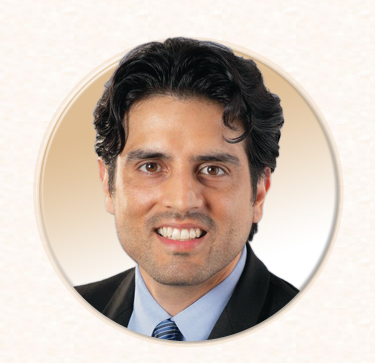Hemorrhoids Treatment

If you have hemorrhoids, you are not alone. Far from it! More than half of adults in America suffer from hemorrhoids. But few people with hemorrhoids ask their doctors for help. This might be because they are embarrassed, because they think the only treatment is painful surgery, or because they want to try home remedies before seeking medical advice. However, it is very important to tell your doctor if you think you may have hemorrhoids. Hemorrhoids detected early can usually be resolved with non-surgical in-office treatment.
Not only can your doctor help you find relief from discomfort, more important, he or she will also determine whether your symptoms are caused by hemorrhoids or by a number of other, potentially serious problems that cause the same or similar symptoms. These include anal fissures and fistulae, polyps, skin tags, pruritus, Crohn’s disease, Irritable Bowel Syndrome (IBS) or cancer.
Hemorrhoids - Overview
Hemorrhoids are swollen veins in the anal canal. These veins normally provide cushioning during bowel movements and may swell after repeated lifting, straining, constipation, passing hard stools, diarrhea, or pregnancy. Hemorrhoids aren't life-threatening but they can be painful, and if swelling persists the veins may become permanently stretched ("prolapsed").
Types of Hemorrhoids
There are two kinds of hemorrhoids: internal and external. The dentate line along the circular anus muscle divides the interior nerve canal, which has no nerve endings, from the anal opening and exterior areas, which do have nerve endings. Hemorrhoids that form in the anal canal are thus called internal hemorrhoids, while those outside the anal opening are called external hemorrhoids. External hemorrhoids are typically more uncomfortable at first because there are nerves present in the area where they form. However, internal hemorrhoids often swell beyond the dentate line, causing pain and other problems.
Symptoms of Hemorrhoids
Hemorrhoid symptoms vary in type and severity depending on such factors as a person's age, anatomy and heredity and duration of the problem. The most common symptoms are bleeding, itching, burning, discomfort during bowel movements, and the feeling of fullness or of a mass in or on the anus.
Treatment for Hemorrhoids

Hemorrhoids should only be treated if they are painful or cause complications. To choose an appropriate treatment, the cause or causes need to be determined. Making changes to diet and fluid intake, toilet habits and exercise can relieve symptoms and prevent recurrence of the problem. Relief can also be found by treating related problems that irritate the hemorrhoid and affected areas (such as diarrhea and constipation).
Beyond this, treatment depends on the type and severity of the hemorrhoid as well as how it has responded to any previous treatment. Hemorrhoids are divided into four grades or stages depending on their history. Grade I and II hemorrhoids are usually treated non-surgically, while Grades III and IV are more likely to require surgical correction.
Hemorrhoid Treatments include:
Rubber Band Ligation (RBL)
An elastic band is wrapped around the hemorrhoid, cutting off blood supply and causing the tissue to die and drop off. External hemorrhoids and early-stage internal hemorrhoids can be treated with RBL.
Infrared Photocoagulation (IPC) or Electrocoagulation
The hemorrhoid is exposed to a warm, painless infrared light or electrical current over a series of treatment sessions.
Injection Sclerotherapy
A sclerosing solution injected into the blood vessels causes the hemorrhoids to shrink.
Surgical Hemorrhoidectomy
Surgery is usually reserved for very advanced cases with a large amount of protrusion. The hemorrhoid is removed with a scalpel, cautery device or laser (which causes less pain and shortens recovery time). Local or general anesthesia may be used and hospitalization is usually required, with recovery taking up to two weeks or a month.
Stapled Hemorrhoidectomy
This recently introduced procedure involves the insertion of a circular stapler into the rectum that pushes internal and external hemorrhoids and surrounding tissue up into the anal canal and staples them in place, cutting off blood supply.
Our Surgeons Specializing in Hemorrhoids Treatment

- Aisha Akhtar, MD, FCPS
- Colon & Rectal Surgeon
- Glendale & Scottsdale
- Learn More

- Adrienne Forstner-Barthell, MD, FACS, FASCRS
- Colon & Rectal Surgeon
- Glendale
- Learn More

- Michael Buckmire, MD, FACS, FASCRS
- Colon & Rectal Surgeon
- Mesa & Gilbert
- Learn More

- Ashley R. Casano, DO, FACS
- Colon & Rectal Surgeon
- Gilbert & Mesa
- Learn More

- Tafadzwa Makarawo, MD, MRCS(Ed), FACS
- Colon & Rectal Surgeon
- Glendale
- Learn More

- C. Amir Esparza Monzavi, MD
- Colon & Rectal Surgeon
- Buckeye & Phoenix
- Learn More

- Sushil Pandey, MD, FACS, FASCRS
- Colon & Rectal Surgeon
- Sun City West
- Learn More

- Karthik Raghavan, MD, FACS
- General Surgeon
- Glendale
- Learn More

- Neeraj Singh, MD, FACS, FASCRS
- Colon & Rectal Surgeon
- Glendale, Phoenix & Scottsdale
- Learn More

